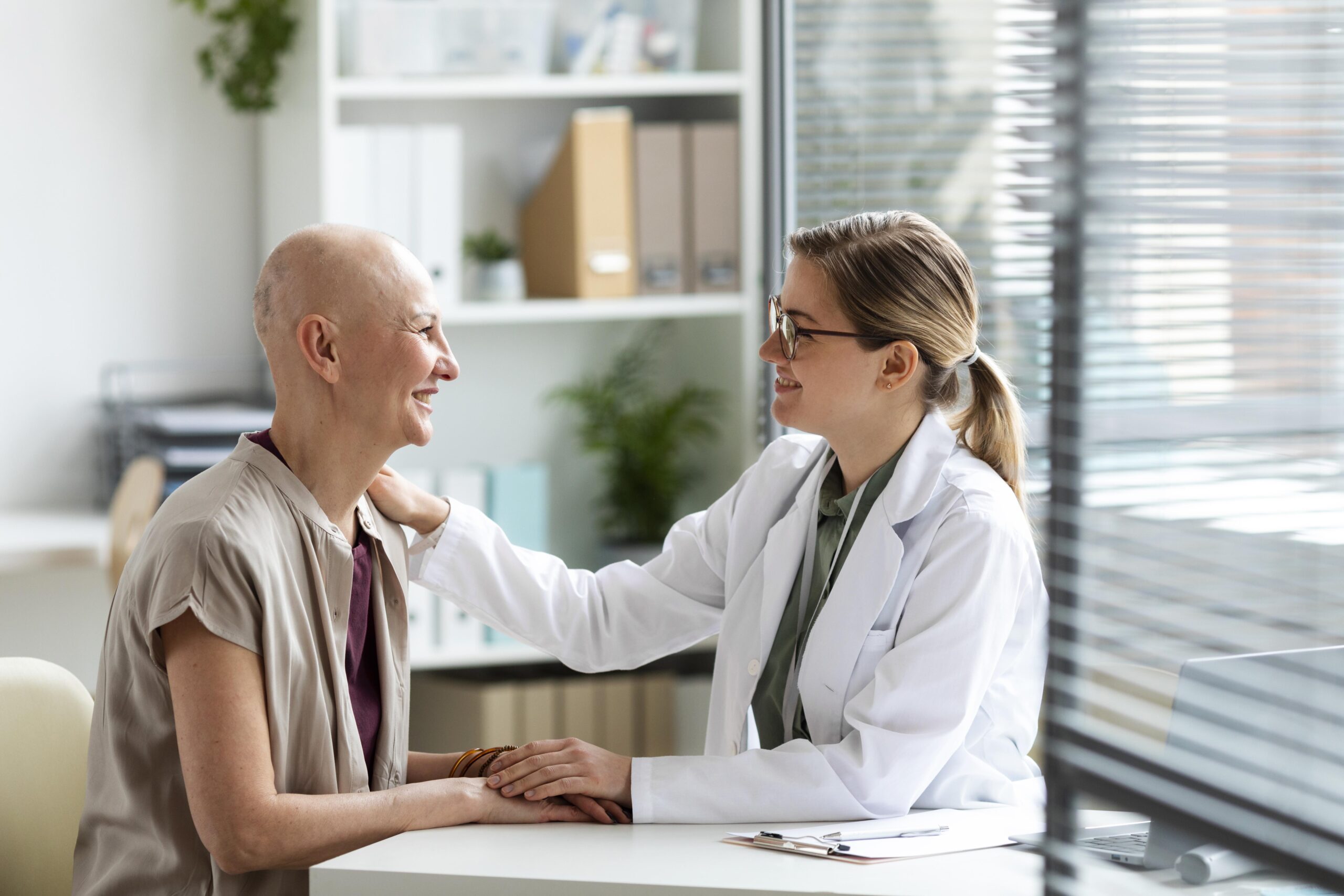Enteroscopy in St. Louis, MO
What is an enteroscopy procedure?
Enteroscopy is an endoscopic procedure where a lengthy, narrow tube or “scope” is placed into your mouth and advanced to the second portion of the small intestine known as the jejunum. Our scope has a light and a camera on the end of it which helps the provider to examine the lining of the esophagus, stomach, and small bowel. An enteroscopy procedure might be suggested to identify the source of gastrointestinal issues such as abdominal pain, bleeding, or abnormal x-ray results. If you need an enteroscopy, you can contact our team of talented gastroenterologists at a Specialists in Gastroenterology location for you for more information. Our providers often conduct enteroscopy procedures for St. Louis, MO patients and look forward to helping you manage your GI health.

Why is an enteroscopy performed?
The enteroscopy procedure is typically conducted to diagnose irregularities or disorders in the small intestine. Signs or symptoms of such conditions may involve:
- Abnormal tumors or growths in the small bowel
- Concerning x-ray results
- Unexplained diarrhea
- Unexplained bleeding
To a certain extent, other exam options will depend on the overall reason for having to undergo the enteroscopy procedure in the first place. In many cases, enteroscopy is the most effective way to evaluate and manage abnormalities in the upper GI tract, especially if they impact the jejunum (the second portion of the small intestine). However, an x-ray known as the upper GI/small bowel follow-through can appraise your upper gastrointestinal tract, too. This is, though, just a diagnostic exam. Treating these abnormalities will require an enteroscopy or a surgical procedure.
What should I expect the day before my enteroscopy?
Before your enteroscopy, you will be given directions from your Specialists in Gastroenterology provider informing you of the necessary prep. Many individuals will be allowed to eat normally the day before their exam. Patients will be asked not to take anything by mouth after midnight, aside from any medications they take. It is important to follow the instructions provided by your specialist. There will also be more information about your medications. In most cases, your medications can continue as instructed. However, in some cases, particularly in those who take blood thinners and in diabetics, special instructions will be given.
What happens on the day of my enteroscopy?
You will need to arrive at the endoscopy center an hour to an hour and a half before your enteroscopy procedure. This gives you time to complete patient forms and get prepped for the exam. We will have you change into a hospital gown. An intravenous (IV) catheter will be inserted in your arm so that sedation can be given to you. We will connect you to equipment that will enable our providers to keep track of your heart rate, blood pressure, pulse, electrocardiogram, breathing, and oxygen level during and after the exam.
Once in your exam room, we’ll have you lie down on your left side on the procedure table. The IV sedation will be started. Small amounts are given at a time to verify you won’t have an adverse reaction to the medication and to give you only the amount you need. After the right amount of sedation is reached, the endoscope will be gradually introduced into your mouth. The scope will be carefully advanced through the esophagus, stomach, and small intestine. A small amount of air will be injected through the scope into the gastrointestinal tract to help your specialist see. Any remaining fluid in the upper GI tract is suctioned out through the scope. Depending on the findings of your procedure, several things can be conducted at the time of the procedure, such as biopsies, removal of polyps, and control of bleeding. Once we’re done, as much of the air and remaining fluid as possible is drawn out via the scope. Depending on our findings, the procedure takes approximately 15 – 45 minutes.
After the exam, you will be transferred to recovery to be monitored while the sedation starts to wear off. The amount of IV sedation used during your exam and your individual reaction to the sedation will dictate how quickly you come to, though most patients are awake enough for discharge within 45 – 60 minutes. You will not be allowed to drive for the remainder of the day, so you will need to arrange for a ride home. You will also be instructed not to work, sign important documents, or complete arduous activities for the remaining day. Most patients can eat and drink normally after being discharged from the endoscopy unit, however, instructions regarding activity and exercise, medications, and eating will be given before discharge.
Following the enteroscopy procedure, your Specialists in Gastroenterology team will go over the results of your exam with you. A number of patients have difficulty remembering what they are told after the exam because of the effects of the sedation. We recommend, if you’re able, having a family member join you for these results. You will also go home with a report. You will be given any biopsy results usually within one week.
Are there risks with an enteroscopy?
Generally, an enteroscopy is a safe and effective exam. Complications happen in only about 1% of patients. Most issues are not fatal, however, if an issue does arise, it may demand a hospital stay and a surgical procedure. Ahead of your exam, we’ll make sure you understand all risks before signing the consent form. Should any questions or concerns arise, these can be talked through with your GI specialist before the enteroscopy.
Medical reactions from sedation can occur. These could include but are not limited to allergic reactions, difficulty breathing, effects on the heart and blood pressure, and irritation of the vein used to give the medication. Bleeding could happen with biopsies, the removal of polyps, and with dilating strictures. Additionally, bleeding, which results in a blood transfusion or hospitalization, is unlikely. A hole or laceration of the esophagus, stomach, or small intestine could occur. This may be recognized during the procedure, or it might not be obvious until later in the day. In most cases, this will require surgery or hospitalization. This is uncommon, even when dilation is performed and biopsies are taken. It is very important that you call our St. Louis, MO office promptly should symptoms occur after the procedure such as worsening abdominal pain, bleeding, or fever.
Like any other procedure, enteroscopy is not perfect. There is a minor, acknowledged chance that irregularities, such as cancers, might be undiagnosed during the procedure. It is critical to follow up with your provider as advised and inform them of any new or ongoing issues.

Advanced procedures for better GI health
Enteroscopy FAQs
What should I avoid doing after my enteroscopy?
After an enteroscopy, it’s important to follow your doctor’s instructions carefully. Do not eat or drink until your doctor gives you the go-ahead. Follow any specific medication guidelines provided. Additionally, avoid strenuous physical activities. Contact our office immediately if you experience severe abdominal pain, persistent bleeding, or fever.
Who should not undergo an enteroscopy?
Enteroscopy may not be suitable for individuals with certain medical conditions or risk factors. Those with severe heart or lung disease, uncontrolled bleeding disorders, or a recent history of heart attacks may face increased risks from sedation and the procedure itself. Individuals with anatomical abnormalities or strictures in the digestive tract could also be advised against this procedure. It’s essential to discuss your medical history and any concerns with your healthcare provider to determine if enteroscopy is right for you.
What is the difference between an endoscopy and an enteroscopy?
The primary difference between an endoscopy and an enteroscopy is the area of the digestive tract they examine. Both procedures use a flexible tube with a camera (endoscope). Endoscopy typically examines the upper gastrointestinal tract, including the esophagus, stomach, and duodenum. Enteroscopy, however, is designed to visualize the small intestine, which is deeper within the digestive system and more challenging to access. Enteroscopy is often employed when other diagnostic tests, such as endoscopy or colonoscopy, have not provided clear results or when there is a suspected issue in the small intestine.
